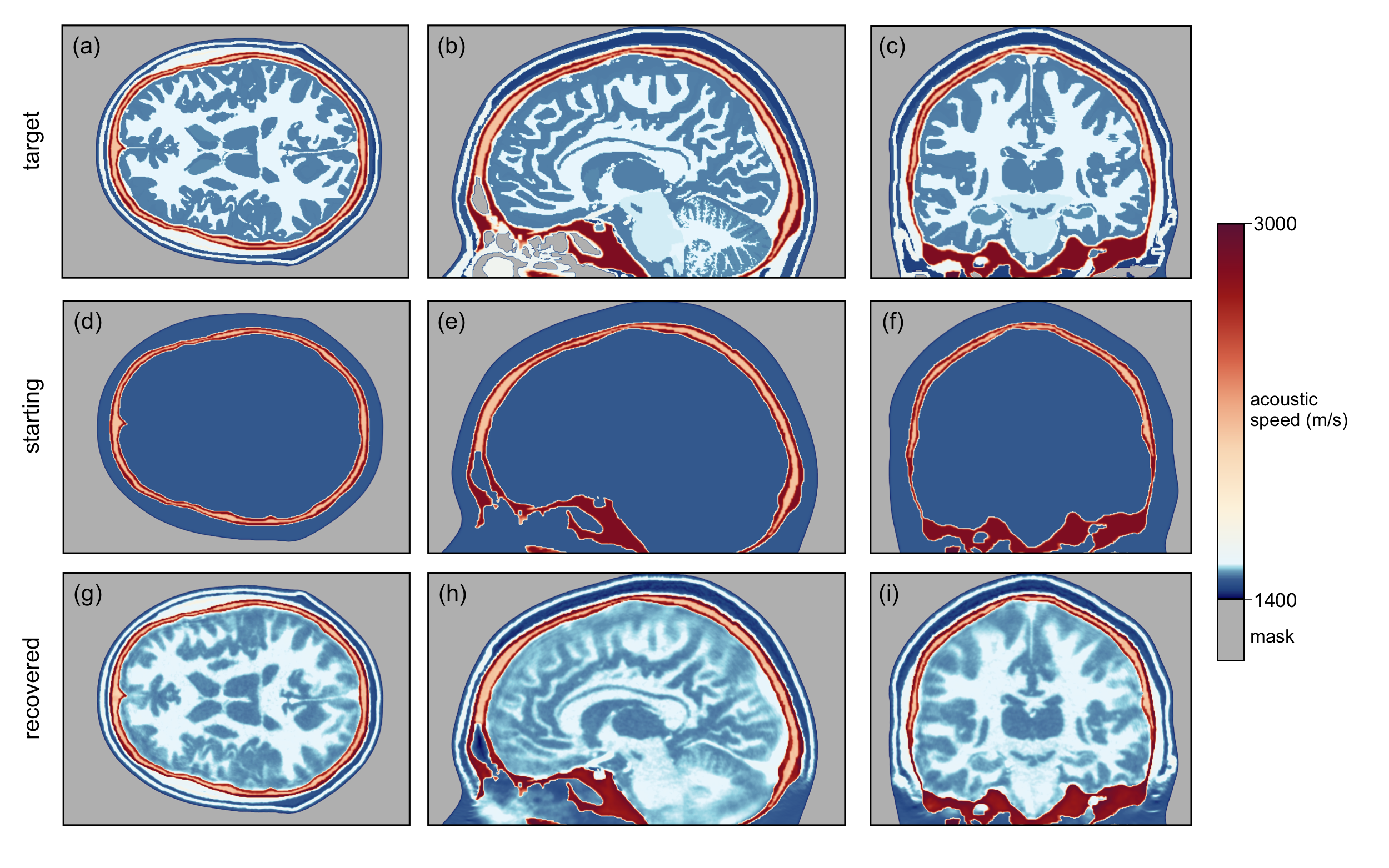Ultrasound imaging of the brain is very challenging for traditional reconstruction algorithms. This is for two reasons. First, the strong reflected signal from the skull swamps the weak reflected signal from the brain. Second, algorithms for traditional ultrasound reconstruction cannot account for multiple-scattering in the skull.
Instead full-waveform inversion (FWI) has been proposed to reconstruct ultrasound data in 3D. FWI is an algorithm developed in geophysics, that can take into account all phenomena of acoustic wave propagation. This makes FWI ideal for transcranial 3D ultrasound imaging because it is capable of accounting for multiple-scattering in the skull.
The transducer design is also being redefined, with the traditional phased-array probes being replaced with a hemispherical array of single-element transducers. The array surrounds the head, thus collecting both reflected and transmitted data required to perform FWI.
References
- Lluís Guasch, Oscar Calderón Agudo, Meng-Xing Tang, Parashkev Nachev and Michael Warner, Full-waveform inversion imaging of the human brain, npj Digit. Med. 3(28) (2020) DOI: https://doi.org/10.1038/s41746-020-0240-8

